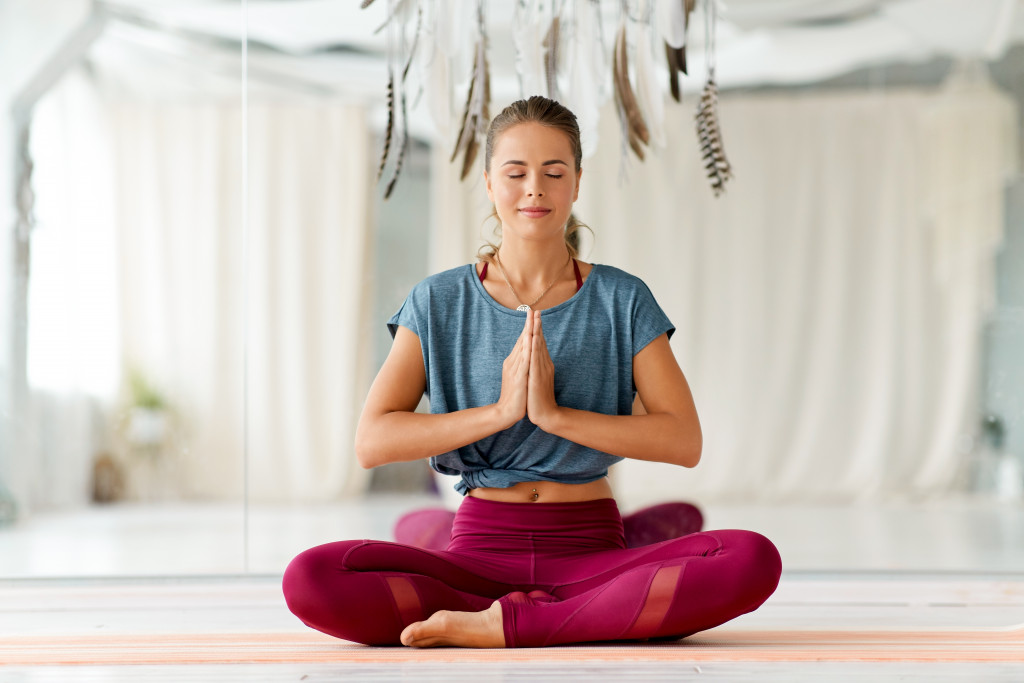As the world grapples with the COVID-19 pandemic, an increasing number of people are experiencing stress and anxiety. According to a recent poll by The Harris Group, 32% of Americans said they are so concerned about the coronavirus pandemic that they find it difficult to make basic decisions in life. Even after the restrictions are lifted, it will take some time for people to recover from the stress of this situation.
However, one thing that might assist individuals in shedding the COVID-19 shadow is exercise. It might sound simple, but it gets your blood pumping and helps you to physically release any built-up tension. It can also give you a mental break from the things that are causing you stress. So here are five sports that you can do to relieve anxiety and stress:
Running or Walking
There’s a reason runners often say they feel better after a run. Running releases endorphins, which have mood-boosting effects. It also improves your memory and ability to learn, which will help you to keep your mind sharp on your daily routines.
You might want to try to run outside, for it will lessen the feelings of loneliness and isolation. Embrace the freedom that we currently have and use it to explore nature. If you’re not a fan of running, try walking instead! To get stress-relieving benefits, you don’t have to walk fast. Even a slow stroll has been shown to promote relaxation.
Yoga
Yoga is a type of exercise that focuses on both the mind and the body. The slow and controlled movements help to increase flexibility and strength. Deep breathing exercises can also help to relax the mind and body.
According to a 2016 study, people who did yoga for eight weeks slept better than those who didn’t do yoga. Good sleep also helps other stress-causing problems like clenched jaw and bruxism or teeth grinding, which often worsens at night while people sleep. This is often why people have a hard time falling asleep and staying asleep, which causes more stress the next day.
Yoga stress-relieving poses are a perfect partner of occlusal night guards for teeth because they relax the muscles around the jaw, reducing clenching and grinding at night. And as the patient sleeps, their occlusal night guard will cover their teeth to prevent dental damage. This will give the jaw ultimate comfort and relief from muscle tension and painful joint symptoms.

Swimming
Swimming is an excellent exercise method because it’s low-impact and easy on the joints. It’s also a great way to relax because you can let your body float in the water. The rhythmic movement of swimming can also help to put your mind at ease.
Swimming can help you sleep better since it raises your body temperature and alerts your body that it is time to go to sleep when it decreases after a workout. Many swimmers report that a good swim leaves them feeling less tense and happier. If you don’t know how to swim, there are still plenty of water-based activities that you can do to relieve stress, such as stand-up paddleboarding or kayaking.
Tai Chi
Tai chi is a slow, graceful martial art that originated in China. It’s often described as “meditation in motion” because it involves a series of slow, flowing movements linked together by weight and balance shifts. The focus on breath control and coordination help to calm the mind and focus the body.
A 2013 study found that people who did tai chi for six weeks had lower cortisol levels than those who didn’t do tai chi. Find a qualified instructor who can teach you the proper form and techniques. Once you learn the basic movements, you can do tai chi anywhere, even in a small space.
Pilates
Pilates is another exercise that can help to strengthen the mind-body connection. During World War I, Joseph Pilates developed it as a method to help injured soldiers recover. It is a low-impact exercise that uses controlled movements to lengthen and tone muscles. Pilates can also help to improve posture and increase flexibility.
The breathing exercises in Pilates can help to relax the mind and body. Pilates is an excellent exercise for beginners because there are many options. You can start with beginner classes and progress to more advanced courses as you get stronger.
Key Takeaways
It can be challenging to muster up the courage to exercise when you’re feeling anxious or stressed. But remember that exercise is a great way to release those feelings and improve your mood. Once you get started, you may enjoy it and want to continue. And don’t worry if you don’t feel like you’re “good” at exercise. Everyone has to start somewhere. Just put on some comfortable clothes and give it a try.

